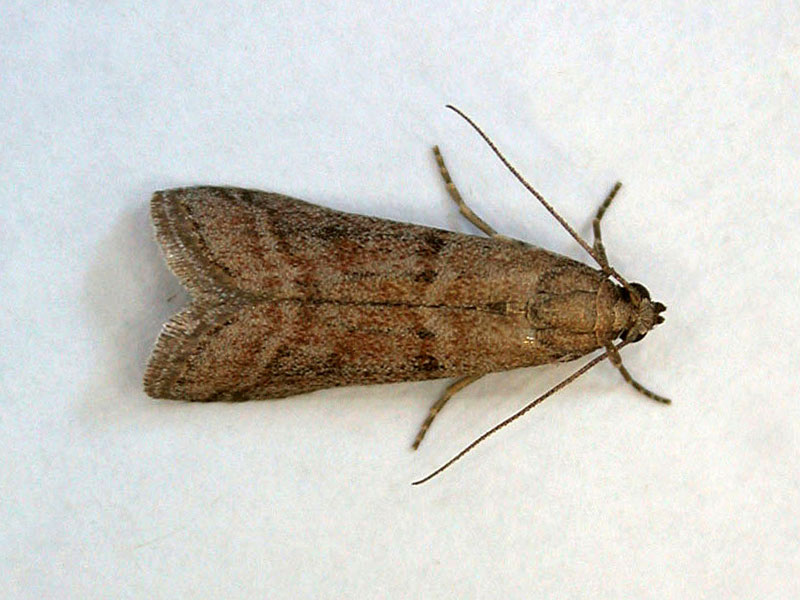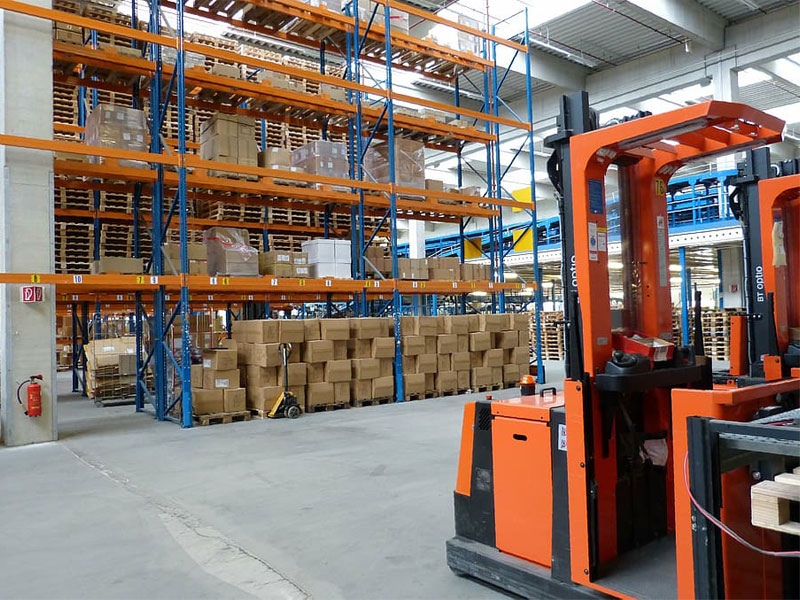Warehouse moth infestation

The Warehouse moth is very close to the Meal moth but it infests foods like cocoa beans, nuts and dried fruit. It can also infest various flours, cereals, cocoa powder, as well as tobacco. This makes them a very challenging pest for the businesses dealing with these products. The Warehouse moth is considered as serious pest in the tobacco industry, as the Tobacco beetle. When they enter a warehouse, they most often than not go to the raw materials store. If they spread around the factory, they can find food sources in the machinery where there are leftovers from grains and cocoa beans. The infested products are not only rendered unfit for purpose but also can be seats for infection.
Once entered a factory, there is always a risk of the Warehouse moth laying down eggs in the finished product. This will result in ‘worms’ (the caterpillar-like larvae of the pest) hatching inside the finished product and contaminating it. The adult moths are not capable of penetrating through packaging, however, they can sense the smell of a product through a very tiny opening, which would lead to the moth laying eggs close to this opening and the larvae will then crawl inside and infest the product.
Warehouse moth treatment and control

The Warehouse moth is similar to the Indian Meal moth and the Mill moth, as well as other stored product insects, when it comes to infestation prevention and control. The best way to prevent the development of such infestation is to conduct regular pest control inspections, which would detect the early signs of a potential infestation and the necessary precautions will be taken, so that it does not develop and spread. Good housekeeping and sanitisation of all areas in the factory or warehouse is also very important when it comes to limiting the conditions for the Warehouse moth infestation development.
In cases where the Warehouse moth has already spread or cannot be controlled with simple measures, fumigation could be carried out in all affected areas, followed by an insecticide treatment of all associated cracks and crevices that may serve as a hiding spot for the pest. Professional treatments are highly effective, eradicating all life stages of the moth and achieving high success rates in general. Our experienced pest technicians have been extensively trained by the British Pest Control Association (BPCA) and are constantly following the new trends and techniques in pest control, making sure that they are using the highest quality insecticides and most effective methods for the extermination of the pest.
Prime Pest Control provides safe and efficient control of the Warehouse moth for residential and commercial properties, factories and warehouses across North, South, West and East London, as well as the surrounding counties. For professional advice on Warehouse moth pest control or if you would like to book an inspection and risk assessment with one of our experienced pest technicians, you can call in our office 24/7.
About Warehouse moths
The Warehouse moth (Ephestia Elutella) is a popular industrial pest, which infests both food products (flours, cereals, cocoa, etc…) and tobacco. It is grey-brown in colour and is banded with lighter and darker colours on its wings. The length of this moth is 7 mm to 9 mm at rest and 10 mm to 16 mm with spread wings. The larvae may be slightly different in colour, depending on their diet – off-white, yellowish or reddish colour.
The adult female Warehouse moth can lay up to 279 eggs. In temperatures above 20 degrees Celsius it takes 3 to 6 days for the eggs to hatch and it them takes 10 to 20 days for the pupae to mature at temperatures between 18 Celsius and 26 Celsius. Pupation can happen immediately in dark and secluded places and maturation can be very quick, however most pupae remain at this stage for a year time, which extends the presence of the infestation. The total lifespan of the Warehouse moth is between 50 and 90, depending on the conditions available.
